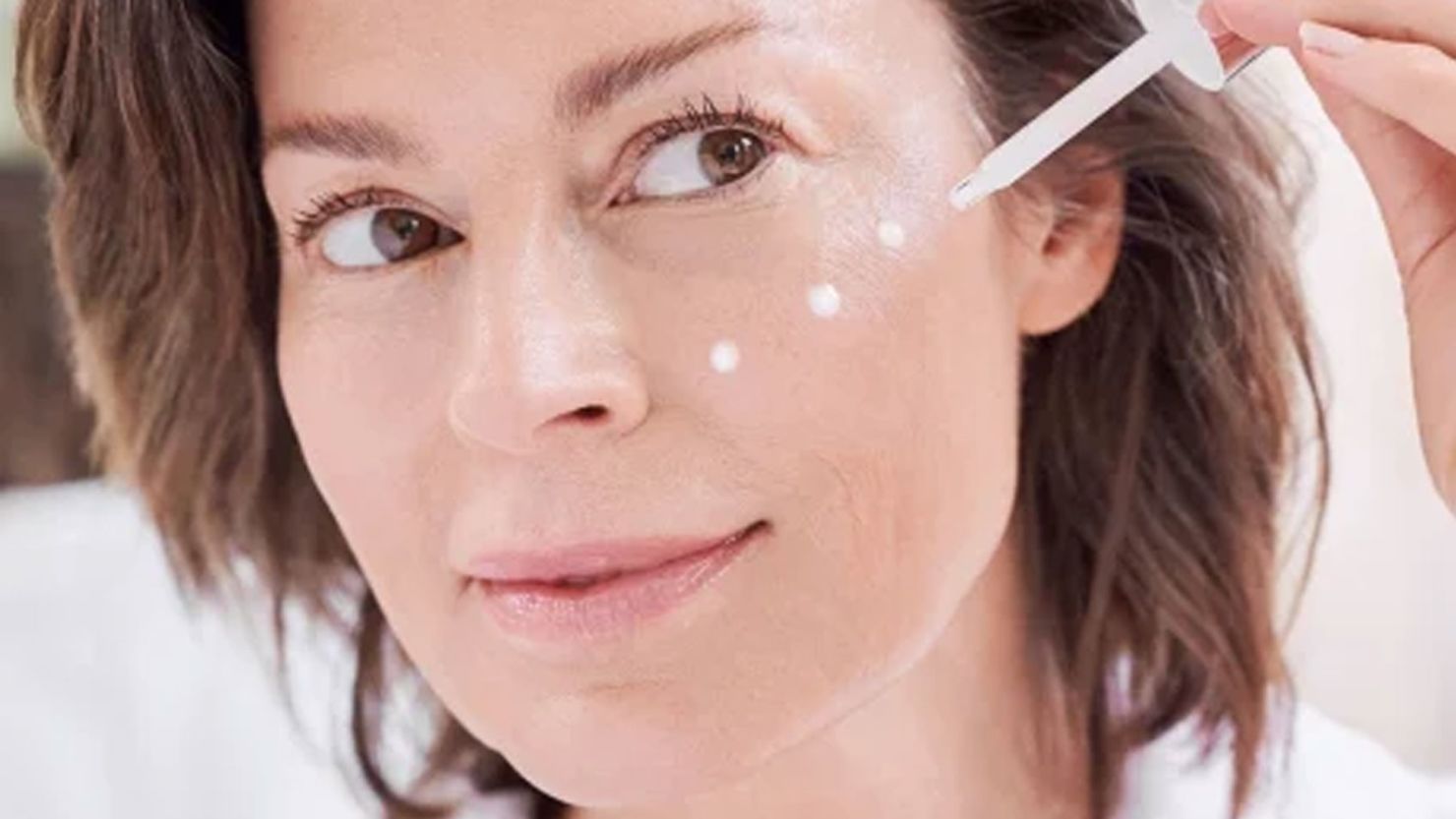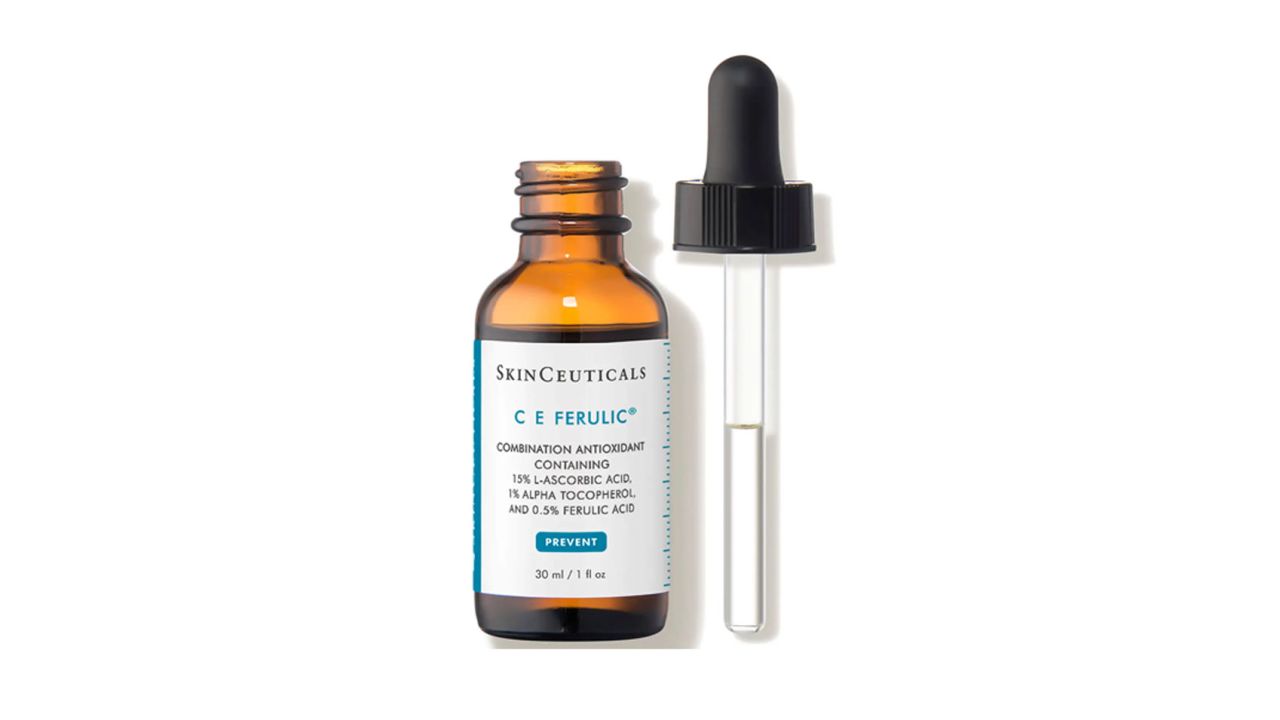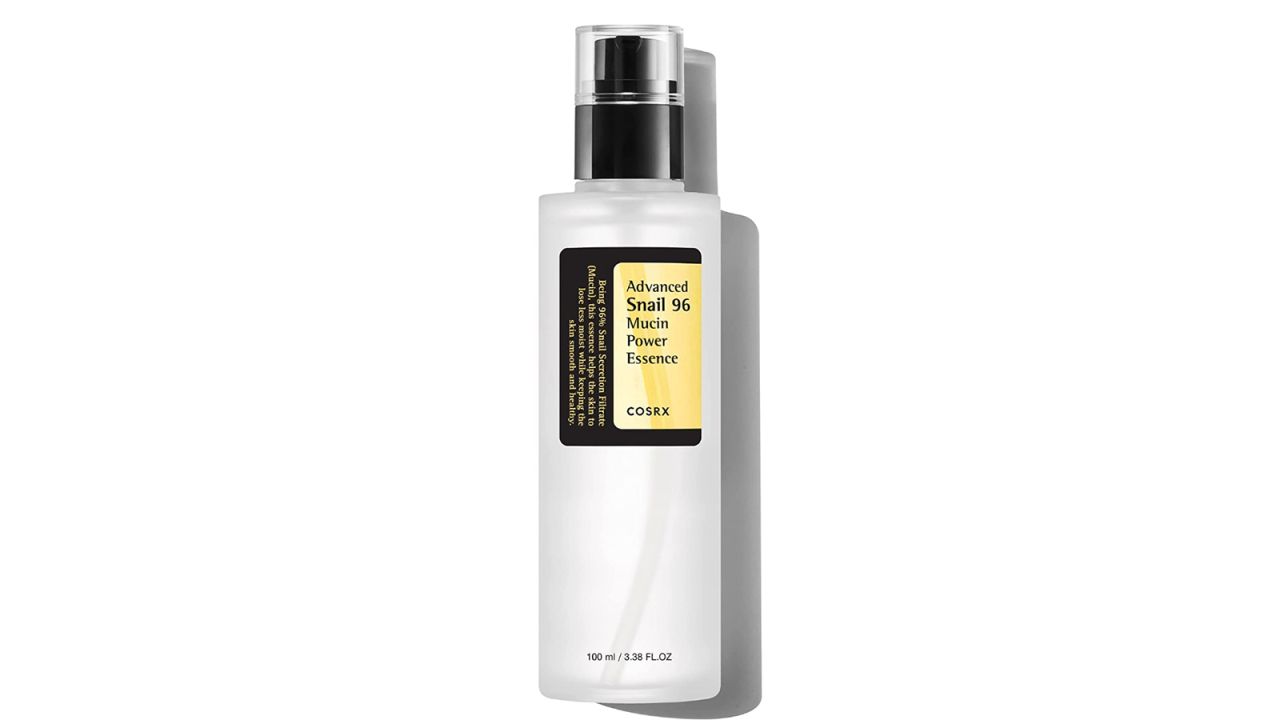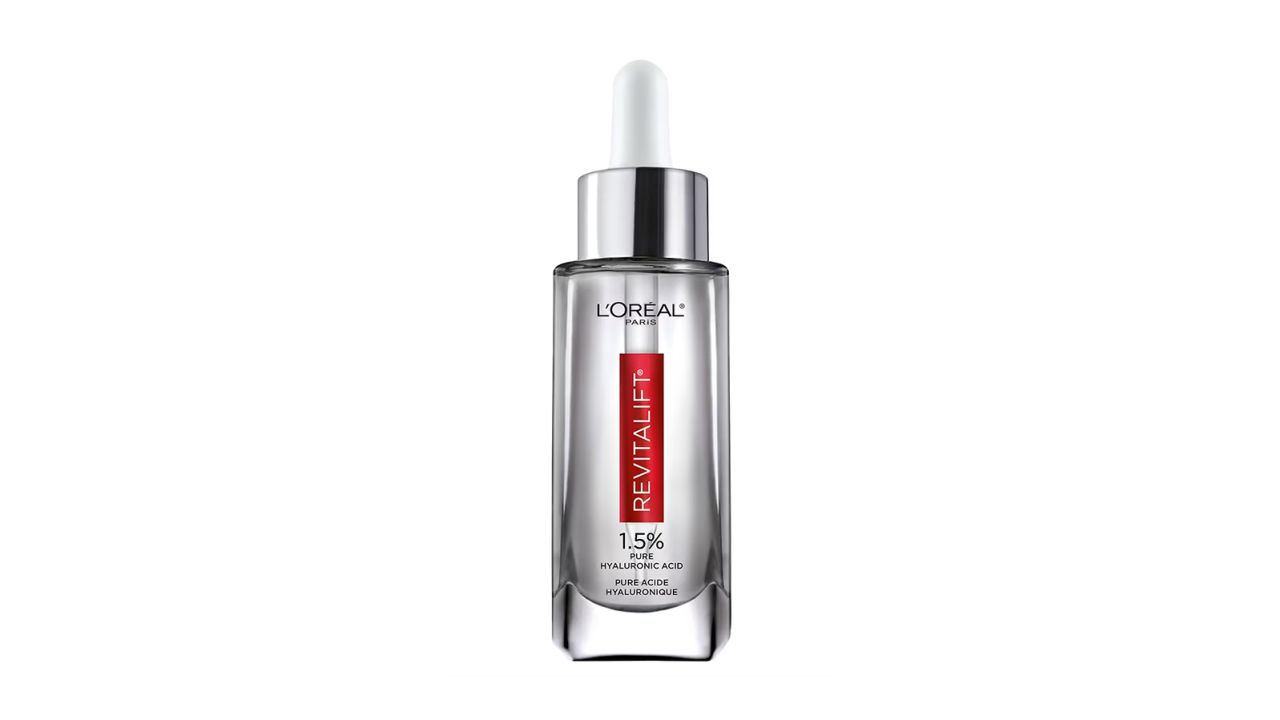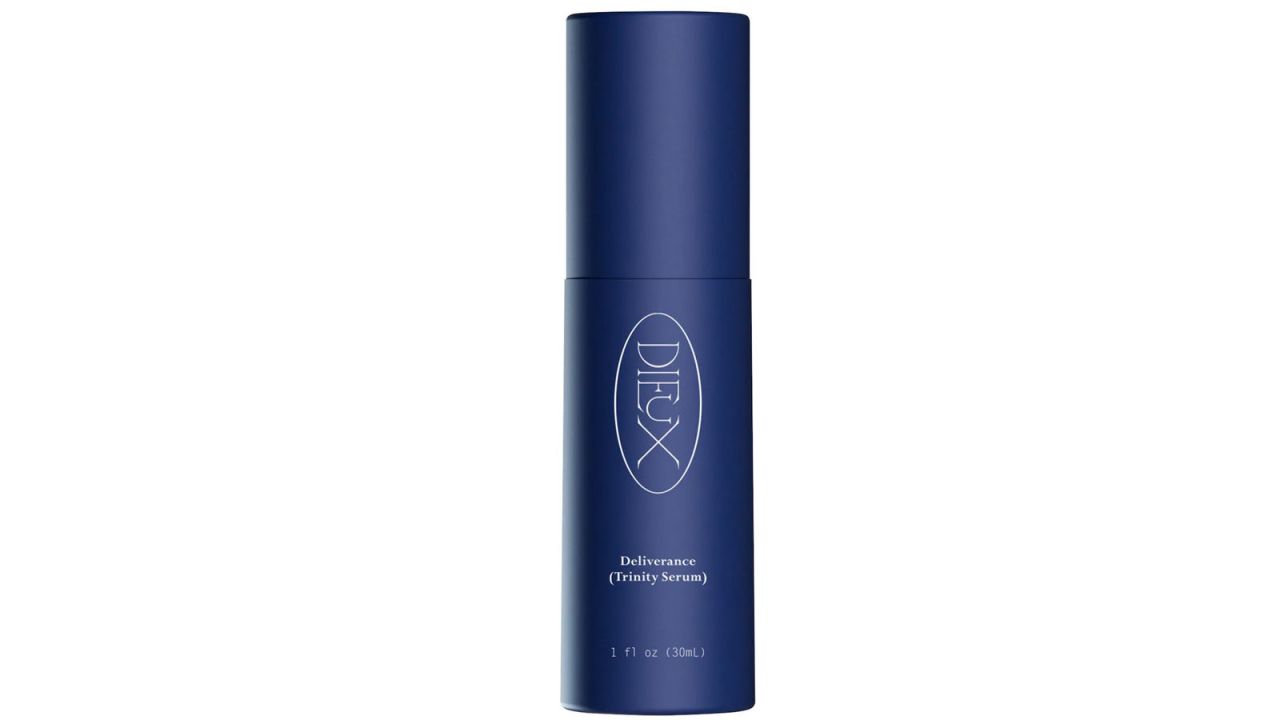Face serum quick picks
Anti-aging face serum: BeautyStat Universal C Skin Refiner
Exfoliating face serum: The Ordinary Lactic Acid 10% + HA 2% Exfoliating Serum
Face serum for dark spots: Mother Science Molecular Hero Serum
Face serum for dry skin: CosRX Advanced Snail 96 Mucin Power Essence
Face serum for acne-prone skin: Versed Just Breathe Clarifying Serum
Face serum for sensitive skin: Dieux Deliverance
Moisturizers, serums, essences, oils, mists — the list of “must-have” beauty products goes on. It can be hard to parse out what you actually need from what’s just a marketing ploy, but even if you don’t want to spend a lot of time or money on an exhaustive skin care routine, dermatologists say adding a serum might be your ticket to clear, bright, even-toned skin.
“A serum is a skin care product that can deliver a high concentration of specific active ingredients directly to the skin,” says cosmetic chemist and founder of Acaderma, Dr. Shuting Hu. They’re specifically designed to target various skin care concerns like fine lines, loss of hydration and hyperpigmentation, among others,” she says. And unlike moisturizers or creams, “serums are low viscosity, so the active molecules can penetrate the skin on a deeper level compared to a cream or moisturizer,” Hu adds. “The thin, liquid texture of a serum makes it easy for it to penetrate the skin, and the high amount of concentrated actives make a serum more powerful and effective than most moisturizers or other skin care products.” In layperson’s terms, they’re like a booster for your skin.
When to use a face serum
Most serums are designed to be applied after cleansing but before moisturizer. “I consider serums part of my skin prep routine,” says makeup artist Ashleigh Ciucci. “I mist the skin, which will helps make serums and creams absorb more efficiently. A few drops of your serum will deliver anti-aging, reparative and texture benefits, depending on which you choose.” In case you needed more convincing, celebrity makeup artist Grace Pae seconds the skin-priming benefits of a serum. “For normal to drier skin types, I always use a serum because it really helps to prepare the skin for moisturizer and helps it look more plump and supple,” she says. “I usually use one to two pumps and press it into the skin gently.”
How to find the right face serum for your skin
As with any beauty product, finding the right serum means you need to figure out what you’re targeting first. “Identifying a few key issues like dark spots, dryness or fine lines will help you decide which serum is right for you,” Hu says. “It’s also important to consider what type of skin you have, whether it’s dry, oily or combination. With these two elements in mind, you can then look for a serum that works well with your skin type and also targets those key issues.”
You may even consider using multiple serums to target different skin concerns, but in this case, you’ll want to proceed with caution. Sofie Pavitt, a New York City-based esthetician and founder of Sofie Pavitt Face, says she always tells her clients “to separate their active ingredients — so if they are using a serum in their [morning] routine, their other active should be in the evening. That reduces the risk?of irritation.”
A skin cycling routine — in which you use active ingredients on specific days — is another way to avoid overwhelming your skin.
Celebrity dermatologist Dr. Harold Lancer, who’s worked with celebrities like Victoria Beckham, Beyoncé and Kim Kardashian, has another key reminder: “Remember, you should always patch test when using a new product.” This goes for anything you put on your skin or hair, he says.
Ahead, find the best serums for every skin care concern, according to the pros.
Best anti-aging face serum
“If there’s a single ingredient that’s best known to target the signs of aging, it’s retinol. A derivative of vitamin A, retinol stimulates collagen production and encourages rapid cell turnover,” Hu says. “Retinol serums work in a few different ways. First, by stimulating collagen production, it will help to prevent wrinkles from forming while filling out any existing fine lines or wrinkles,” she says. “A retinol serum will exfoliate dead skin cells to reveal a brighter, smoother skin underneath. It also helps to fade dark spots, sun spots and hyperpigmentation.”
The bad news? Retinol can be super irritating, especially for those with sensitive skin. Lancer recommends starting with an over-the-counter retinol serum with a relatively low percentage of the active ingredient. Start by using a retinol serum at night once per week, and gradually build up over six to eight weeks to daily use.
If retinol isn’t for you, there are alternatives to retinol that can also target fine lines, wrinkles and generally dull skin: “Niacinamide can also work to increase the production of ceramides, which maintains the skin’s protective barrier, so it’s great for anti-aging,” Hu says. Its properties are similar to that of retinol, just without the potential for irritation to occur as with retinol. Lactic or glycolic acids also help to encourage cell turnover by gently exfoliating the skin.
Celebrity facialist Shani Darden's effective retinol serum delivers firming and brightening results. It's one of the esthetician's personal favorite beauty products and is great for those treating acne and/or signs of aging. We think the nonirritating formula is a great first retinol for those who are new to the product category.
Packed with vitamins E, A and C, "This product works wonders for all skin types to help provide protection against aging, free radicals and pigmentation," says Emma Smith,?licensed?esthetician and learning and development manager at Glowbar.
“This features edelweiss stem extract and an advanced retinol complex to lift and firm the skin while also boosting collagen production and inhibiting the production of advanced glycation end products that lead to wrinkles and dullness,” Hu says.
A great entry point for new retinol users, this pick is made specifically for sensitive skin. It combines two forms of retinol with gentle?bakuchiol, a plant-derived ingredient (and retinol alternative) with anti-inflammatory and antibacterial properties.
Best exfoliating face serum
“Proper exfoliation should be a combination of both physical and chemical exfoliants,” says Lancer, who recommends The Method: Polish from his own line for its ability to accelerate cell turnover manually. “A chemical exfoliant should be used as well, which can be in the form of AHAs, BHAs or enzymes. Start off by exfoliating a couple of times a week, then build tolerance so exfoliation can take place daily.”
Before choosing a serum, there are a few interactions to consider: “Benzoyl peroxide [which is an AHA] should not be mixed with retinols or vitamin C, as it degrades the active ingredients and can cause irritation. Products that contain BHAs should not be used with AHAs, as they are not meant for layering and can cause dryness and irritation.” That means anything with lactic, glycolic or citric acid shouldn’t be mixed with salicylic acid or retinol.
A viral beauty product that editors love too, this Skin Perfecting liquid relies on beta hydroxy acids (BHAs) to chemically exfoliate the skin. It has the consistency of a toner but penetrates to clear pores like a serum.
Amy Peterson, medical esthetician and founder of Miami-based medspa Skincare by Amy Peterson considers this a high-strength exfoliator that "helps to reveal smoother skin without drying it out," thanks to the glycerin and hyaluronic acid in its ingredient list.
Fruit enzymes, niacinamide and hyaluronic acid simultaneously smooth and plump to help even skin texture and reduce the appearance of pores. It's light enough to use for your daytime routine — just remember to use SPF on top since it contains exfoliating ingredients.
This at-home glycolic peel helps resurface the skin. "The serum is sealed in individual glass ampoules to provide the skin with the correct, individual doses of targeted care," Peterson says. "It softens and smooths the skin while helping to reduce the appearance of dark spots and wrinkles."
Best face serum for dark spots
Derms universally agree that vitamin C, a naturally occurring, gentle antioxidant, is one of the most effective ingredients for evening skin tone. “Vitamin C specifically helps to protect the skin from the long-lasting effects of UV rays, reducing the appearance of sun spots, refining skin texture and lessening the appearance of existing wrinkles,” Lancer says. Look for words like “brightening” and “even toned” on the packaging, and L-asorbic acid on the label.
“Due to its high level of acidic properties, vitamin C will help promote collagen and elastin production to reduce the appearance of fine lines and wrinkles,” Lancer says. “Vitamin C is also very popular in hyperpigmentation serums, as it inhibits the skin’s melanin production, which causes dark spots. It’s brightening and hydrating so it’s overall a very versatile product.”
Again, they both warn not to mix any vitamin C serum with retinol, so it’s best used in the morning. Because vitamin C breaks down when exposed to sunlight, it’s important to keep your serum in a dark, dry place — and to layer SPF on top.
The gold standard in terms of cult favorites, this Underscored editor-approved serum from SkinCeuticals works to diminish dark spots and dullness over time. We're warning you — once you try it, you'll be hooked and see why the pricey product is totally worth it.
This serum has a lightweight, lotion-like consistency that gives the skin a healthy glow upon application and then sinks in to deliver anti-aging benefits with four forms of vitamin C, hyaluronic acid and a number of botanical extracts. Just note, those with sensitivities to fragrance or citrus oils may want to steer clear as orange oil is within the top five ingredients.
If you're sensitive to vitamin C, this serum is a great alternative. The editor-tested formula uses a patented antioxidant called malassezin to target dark spots and hyperpigmentation, overall fostering a brighter and balanced complexion.
"This face serum is great for anyone?worried about sun damage, as it is used to ward off unwanted? pigmentation," Smith says.
Peterson recommends this serum, formulated with 15% vitamin C, to combat signs of aging while brightening the skin and boosting radiance. "It’s also enriched with pycnogenol and vitamin E and works to reinforce the skin barrier," she adds.
Created by social media-favorite dermatologist Dr. Shereene Idriss, this brightening serum lives up to the hype, according to Pavitt. The facialist says it's "great for evening out discoloration, fading hyperpigmentation and giving a glowing, dewy finish."
“Formulated with 10% vitamin C and retinol, Advanced C Radiance Treatment helps skin appear more radiant, smooth and even toned,” says Lancer.
Best face serum for dry skin
Celebrity and editorial makeup artist Katie Jane Hughes is best known for creating looks with dewy, healthy-looking skin. Her secret? “Look for the words glow or dewy, radiant or hydrating on the bottle!” Oftentimes, that means it’s packed with niacinamide or hyaluronic acid.
You may have heard that hyaluronic acid is one of those sneaky-good molecules that holds up to 1,000 times its weight in water, which means it’s great for dry skin, and Hu can confirm: “It’s one of the key molecules involved in retaining skin moisture,” she says. “As your skin loses moisture and the natural hyaluronic acid levels decrease, using a hyaluronic serum will restore this loss of moisture and also act as a magnet to attract and absorb moisture from your external environment to keep the skin plump and hydrated. After using a hyaluronic serum, follow it up with your moisturizer to seal it all in.” Lancer also notes that hyaluronic acid mixes well with most other ingredients, so it’s great to use with retinol.
Niacinamide, a form of vitamin B3, is also great for dry skin, Lancer says. “It helps build protein in the skin to lock in moisture, prevent environmental damage, minimize redness and blotchiness, treat hyperpigmentation and even treat acne.” And because fine lines and wrinkles are more likely to form when the skin is dry, hydrated skin will always look more supple and plump.
This antioxidant-rich serum has a thick, silky consistency that creates a veil of hydration and wears beautifully under SPF and makeup. It's ideal for dry skin types as the rich formula feels heavier than your typical serum.
We promise using snail slime as skin care isn't as gross as it sounds. Our editors stock up on this viral serum that plumps and hydrates the skin.
"I love Tower28 Intensive Rescue Serum for dry, irritated skin," Pavitt says. "It helps to reduce redness as well as leaving the skin super hydrated."
This is an affordable yet trustworthy serum, according to Peterson. "[It's] hydrating, non-greasy, fragrance-free and delivers 1.5% of pure hyaluronic acid helping to plump the skin and ultimately help reduce fine lines," she says.
Best acne-fighting face serum
While spot treatments are a great way to topically target acne, the right serum can help maintain clear skin too. Look for calming and antibacterial ingredients, along with gentle acids. AHAs like lactic or glycolic acid can increase cell turnover and reduce pesky breakouts. Meanwhile, be careful with oil-based serums and watch out for comedogenic ingredients that can clog the pores, such as coconut oil.
Known for her transformative acne program, Pavitt's first skin care launch is made to help clear up pesky breakouts and smooth skin texture. "The Mandelic Clearing Serum is a mandelic acid serum with large molecular weight so it's ideal for most skin types," Pavitt explains. "[Mandelic acid] is an AHA which dissolves the bonds between dead cells and healthy skin underneath and [the serum] is formulated with panthenol and hyaluronic acid for skin soothing and hydration."
ZitSticka is best known for its super-effective pimple patches, but Ciucci swears by this serum for its blurring effect too. “It’s noncomedogenic, super lightweight and though it targets acne-prone skin, it’s still supple and silky enough for dry skin,” she says.
With both glycolic and lactic acids, "This serum is great for acneic skin to help clean out pores and minimize old scarring," says Smith.
Peterson says this salicylic acid serum helps treat acne as well as fade the imperfections left behind by blemishes.
Breakout-prone users of all ages love this gentle clarifying serum with niacinamide, willow bark extract and zinc.
"This innovative, oil-free formula combines 2% dioic acid with an optimal blend of alpha- and beta-hydroxy acids, effectively reducing acne formation, unclogging pores and improving the appearance of fine lines, wrinkles and uneven skin tone," Peterson says. "It offers multiple benefits, such as reduced excess sebum production, improved skin tone and decongested pores, making it an ideal choice for acne-prone, oily, combination and aging skin types."
Best face serum for sensitive skin
“The best serums for sensitive skin provide active [ingredients] that soothe and calm inflammation, alleviate dryness and redness and create a barrier against external irritations,” Lancer says. “Active ingredients that work great for sensitive skin include hyaluronic acid, bakuchiol, as well as green tea extract.”
Hu adds that those with sensitive skin should “avoid serums that contain any alcohol, fragrance or essential oils because these ingredients typically cause irritation for those with sensitive skin,” she says, adding that retinol might not be suitable for sensitive skin because it can be too aggressive. “Plant-based ingredients such as bakuchiol [are great] if you want to mimic the effects of retinol.”
Pavitt says this lightweight serum "is a fantastic for irritated skin types as well as plumping fine lines and addressing uneven skin tone."
As Hu suggested, this serum with hydrating bakuchiol (an alternative to retinol) is gentle enough for even the most sensitive skin.
Peterson recommends this serum for those "seeking a soothing and hydrating solution." Powered by hyaluronic acid, cucumber, thyme and other botanical ingredients, the esthetician says it "not only replenishes moisture but also alleviates redness and sensitivity. It gives sensitive skin the comfort and care it needs while boosting and brightening the complexion."
"This serum helps to calm and soothe irritated skin using four types of vitamin B and natural ingredients including ginger and aloe," Peterson says.
